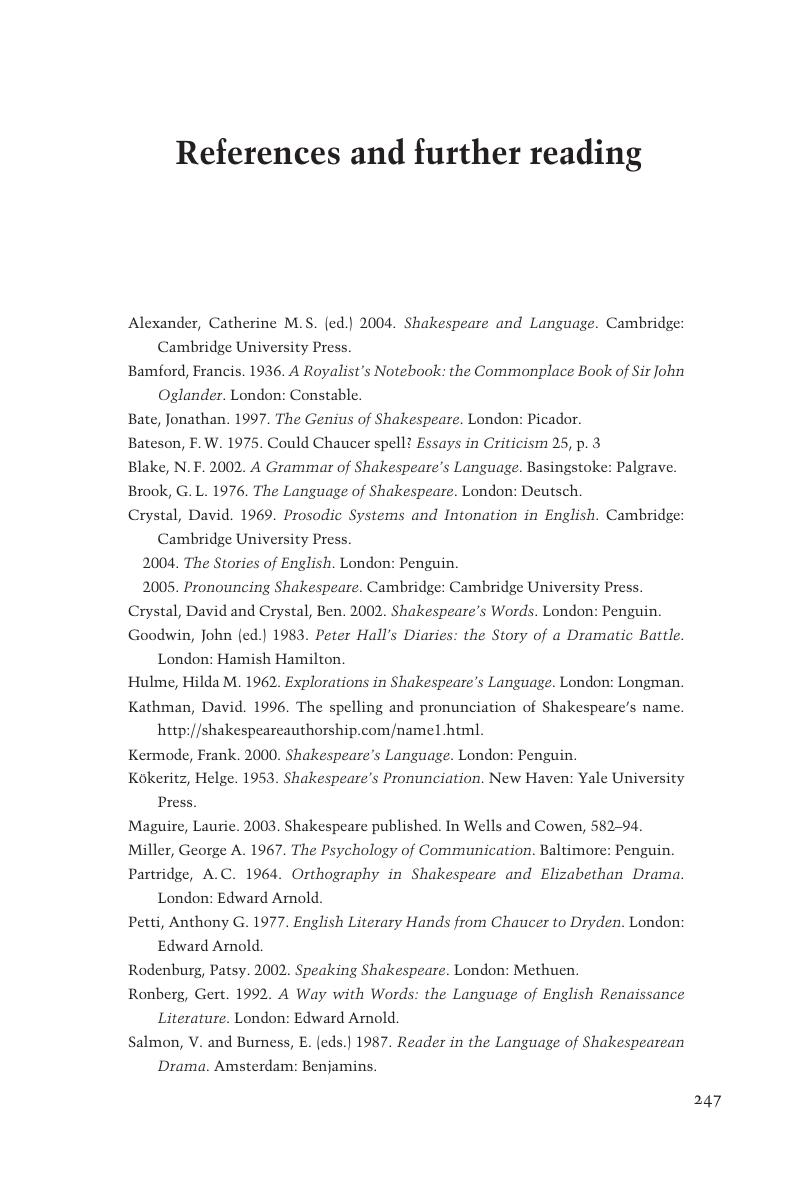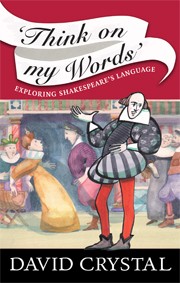Book contents
- Frontmatter
- Contents
- List of figures and tables
- Preface
- Abbreviations
- 1 ‘You speak a language that I understand not’: myths and realities
- 2 ‘Now, sir, what is your text?’ Knowing the sources
- 3 ‘In print I found it’: Shakespearean graphology
- 4 ‘Know my stops’: Shakespearean punctuation
- 5 ‘Speak the speech’: Shakespearean phonology
- 6 ‘Trippingly upon the tongue’: Shakespearean pronunciation
- 7 ‘Think on my words’: Shakespearean vocabulary
- 8 ‘Talk of a noun and a verb’: Shakespearean grammar
- 9 ‘Hear sweet discourse’: Shakespearean conversation
- Epilogue – ‘Your daring tongue’: Shakespearean creativity
- Appendix: An A-to-Z of Shakespeare's false friends
- Notes
- References and further reading
- Index
- References
References and further reading
Published online by Cambridge University Press: 14 May 2010
- Frontmatter
- Contents
- List of figures and tables
- Preface
- Abbreviations
- 1 ‘You speak a language that I understand not’: myths and realities
- 2 ‘Now, sir, what is your text?’ Knowing the sources
- 3 ‘In print I found it’: Shakespearean graphology
- 4 ‘Know my stops’: Shakespearean punctuation
- 5 ‘Speak the speech’: Shakespearean phonology
- 6 ‘Trippingly upon the tongue’: Shakespearean pronunciation
- 7 ‘Think on my words’: Shakespearean vocabulary
- 8 ‘Talk of a noun and a verb’: Shakespearean grammar
- 9 ‘Hear sweet discourse’: Shakespearean conversation
- Epilogue – ‘Your daring tongue’: Shakespearean creativity
- Appendix: An A-to-Z of Shakespeare's false friends
- Notes
- References and further reading
- Index
- References
Summary

- Type
- Chapter
- Information
- Think On My WordsExploring Shakespeare's Language, pp. 247 - 248Publisher: Cambridge University PressPrint publication year: 2008



